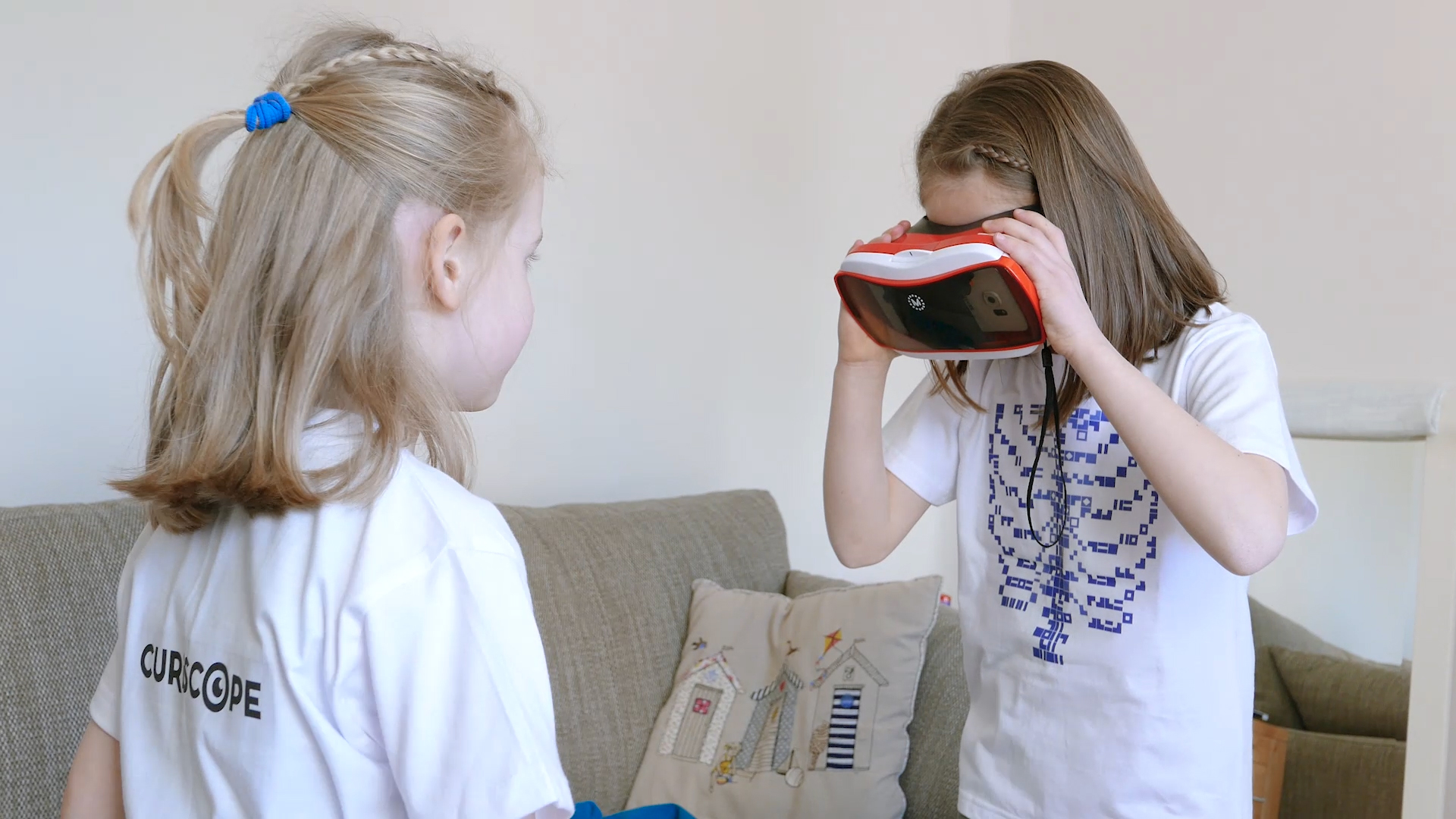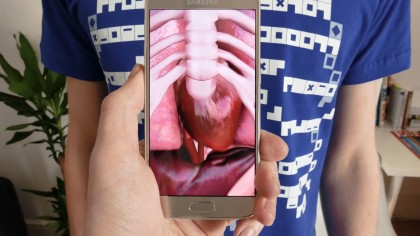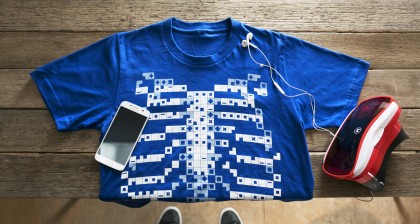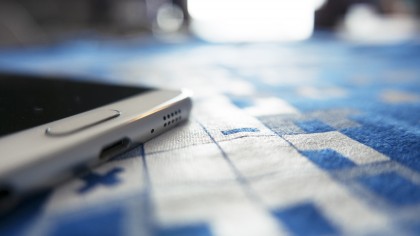Can this T-shirt fix the broken promises of augmented reality?
Curiscope has sights beyond the heart

In March, a small team called Curiscope launched a Kickstarter campaign for what, on the face of it, looked like a simple T-shirt. Called Virtuali-Tee, it was actually an augmented reality experience and anatomy lesson rolled into one. Point a tablet or smartphone at the person wearing the T-shirt and the camera transforms the QR-like code on the front into a living, pumping set of organs. Science!
The technology is designed to teach users about the inner workings of the human body, with three biology "lessons" to be available at launch: the heart, the bloodstream and the stomach. The team have also promised a virtual reality mode on Samsung's GearVR that will use the camera passthrough for an extra intimate experience.
The idea took off: Curiscope whisked up an impressive amount of hype and surpassed its Kickstarter goal of $70,000, with orders coming in from all over the world - from South Africa to Japan - as well as large pledges that acted as donations for schools.
Curiscope CEO Ed Barton says the aim for the company is to "become a college for the bedroom", and sees the technology being used in the classroom. "We've had a number of schools that have placed orders in, but our primary market has been parents."

Curisope is working with professionals to make sure the science is airtight, both for the current iteration and for future expansions into other areas of the human body. "We will be teaming up with scientists. That something I'm in the process of securing," says Barton.
Even within the subject of science there's a lot of potential to present a lot of tricky concepts in a more tangible, interesting ways - but there's potential to go well beyond, and now Curiscope has secured its initial funding it's more confident in talking about what comes next.
"The T-shirt becomes a platform on which we can build on," says Barton. "How do you take this and show how health impacts your body? How smoking impacts your body. And turn this into a way of visualising health which isn't metric and chart and stat based, and very abstract for kids to understand."
Sign up for breaking news, reviews, opinion, top tech deals, and more.

"We feel AR apps have lacked value for the last five years," says Barton. "They've fallen short because they don't have a market to address. We want to establish that market so we could build a bigger app."
Curiscope's idea is one of the more interesting ones we've seen in augmented reality, a technology with a chicken-egg problem when it comes to tech and content. Hopes are high for Microsoft HoloLens and Pokemon Go, two other augmented reality projects that are also stirring hype right now. But with dev kits at $3,000, HoloLens could be prohibitively expensive for the average consumer, let alone getting one on the head of every kid in the classroom.
Now that Curiscope has hit its Kickstarter goal, it's taking orders through Indiegogo. The T-shirt costs £20/$30 with a free app and orders will ship this August, with a wider release planned for September. Eventually, Curiscope would like to make the software universal so it can be used across any headset with a front camera.

Curiscope's idea has potential for much more beyond biology, and the team hint at pushing into other areas. CCO Ben Kidd says Curiscope is going to be taking "a huge range of subjects and translating them into incredible AR and VR experiences".
"Curiscope is about allowing children to realise that learning is something they want to do and that being curious and inquisitive gives them a huge advantage in life," he says.
Imagine holding a tablet up to the desk and seeing a magnified visualisation of the bacteria thriving on the surface; or being able to watch atoms forming chemical bonds, illustrating it in a way that's easier to understand. The list goes on, and Curiscope is only just starting to get the blood pumping.

Hugh Langley is the ex-News Editor of TechRadar. He had written for many magazines and websites including Business Insider, The Telegraph, IGN, Gizmodo, Entrepreneur Magazine, WIRED (UK), TrustedReviews, Business Insider Australia, Business Insider India, Business Insider Singapore, Wareable, The Ambient and more.
Hugh is now a correspondent at Business Insider covering Google and Alphabet, and has the unfortunate distinction of accidentally linking the TechRadar homepage to a rival publication.